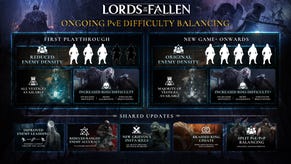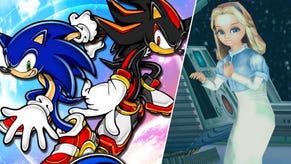"What the hell is MLG?": The Wide World of eSports
In the wake of this weekend's MLG Raleigh championships, we take a look at the history and health of eSports, and how you can get in on the action.
If you were online and in touch with gaming buddies over the weekend, it's likely you heard something about MLG Raleigh - on Twitter, in forums, in excited news updates. With a prize pool of over $1 million on the table and some of the best players in the world on hand, those in the know were understandably excited.
But as often as we saw the #MLG hashtag flash up in our feeds, we saw an accompanying query - what the hell is MLG?
In short, the US-based Major League Gaming is the largest professional eSports league in the world. Its Pro Circuit tours the country, having made stops in in Anaheim, Columbus, Dallas and now Raleigh this year, ahead of events in Orlando and Providence in the coming months.
Founded in 2002, MLG has dabbled in a number of different types of games, but this year's catalogue of competition titles features Call of Duty: Black Ops, Starcraft II, Halo: Reach, and newcomer League of Legends. Major matches are occasionally broadcast on a variety of cable channels, but MLG itself also offers a free livestream of major competitions and an ad-free, subscriber-only HD feed.
MLG has attracted a number of major sponsors, notably Alienware, Sony Ericsson, Bic, Dr Pepper, and the US National Guard, and is very likely the most-watched eSports organisation in the West.
Having said all that, unless you're active on the competitive multiplayer scene yourself, you're somewhat unlikely to have ever heard of it.
Going underground
Although the early stirrings of the eSports scene, way back in the days of Quake, attracted a lot of attention (being paid to play games? That's news!) it rapidly faded from public consciousness, swept under the rug, often touted as a Korean oddity.
The average gamer's ignorance of eSports isn't helped by mainstream media indifference and cultural divides, but the deeply-rooted belief that eSports leagues can't survive outside Asia can be ascribed in part to the bursting of a late 2000's bubble.
Looking internationally to the every-man success of Korean gaming leagues, and domestically at the history of competitive sports as entertainment products, a number of organisations sprung up to fulfil a perceived hole in the sporting calendar.
One highly characteristic event of this period was the formation of the Championship Gaming Series, which was fronted by Fatal1ty, one of the most successful and decorated pro gamers in the world. After spawning franchises all over the world, it went arse-up with only two seasons under its belt, for largely mysterious reasons.
It wasn't the only casualty. The eSports Awards vanished into silence, XLeague.TV folded, and on a smaller, more specific scale, ESPN's Madden Nation, which brought together top players of EA Sports' yearly franchise for four seasons, dissolved into discontinuation. G4, one of the few Western TV channels devoted to gaming, came under serious threat. On the surface, things looked very grim indeed for the Western future of eSports.
Going Strong
These high-profile rumblings made it easy to dismiss eSports as a tried and failed fad, but the fact is a number of established leagues around the world were in place well before the speculators got in on the act, and continue to offer serious prizes, attract international competition, and draw spectators.
ESL World is probably one of the most prestigious leagues available. Now in its sixth season, the Intel Extreme Masters season holds championships across Asia, Europe and the Americas before concluding in an international showdown. It focuses on Starcraft II, Counter-Strike and League of Legends.
The Electronic World Sports Cup is an annual event held at the Paris Games Week, which this year kicks off on October 21. More than 25 countries send teams, sourced from local qualifying tournaments. This year, StarCraft II, Counter-Strike, Trackmania Nations, FIFA 11 and DotA will feature, with a combine prize pool of $200,000.
World Cyber Games is a broad international league which runs on an Olympics-styled medal system. Its diverse catalogue takes in the old favourites of Counter-strike, Starcraft, Warcraft III, Quake Wars and FIFA 10, but also embraces Forza Motorsport III, Guitar Hero 5, Tekken 6, TrackMania, Asphalt 5, Lost Saga, and the newly-added League of Legends, making it one of the most far-ranging competitions. Now in its 11th year, the WCG is currently holding qualifiers around the world, and will return to Korea for this year's finals in December.
The Cyberathlete Profesional League is one of the most active hubs for tournament information. This decade-old organisation was badly burnt in the crash, falling from an international league in its own right to a community group, but remains one of the best-informed eSports organisations in the country.
In the US, the ESEA focuses on Counter-strike, Starcraft II and Team Fortress II, and yet calls on one of the largest player pools in the country. Anyone can sign up and work their way through the leagues to cash prizes, although premium membership is required for some events.
On the back of renewed interest in fighting games thanks to the long-anticipated Street Fighter IV et al, the annual EVO Championships in Las Vegas drew serious media attention this year. Dominated by US and Japanese competitors, the tournaments are considered one of the premiere international events of the fighter calendar and pull competitors from all over the world.
Two well-established hubs based in Australia, Cybergamer and ACL Pro, cater to players from Oceania and even occasionally attract Asian competitors to major events. Halo: Reach, FIFA 11, Call of Duty: Black Ops, Counter-Strike, and StarCraft II, are the major attractions, although a number of other, less common titles including Heroes of Newerth, Enemy Territory and Left 4 Dead get a look in.
In Canada, the Pro Gaming League offers cash prizes for Halo: Reach and Call of Duty: Black Ops players.
Any of the leagues linked above provide information on where to track down livestreams of major tournaments, and even information on how to attend live events as a spectator - as well as how to make the leap from supporter to competitor.
And that's just the leagues; specific publishers host their own tournaments, most notable Valve's $1 million gamescom DOTA 2 debut, and Riot Games' $5 million League of Legends season.
Renaissance
This lively international competitive world may not have the weight of national spectator sports like basketball, NFL, or soccer, but it's a far cry from the geeky underground LAN party scene many imagine it to be.
And now, at last, eSports is enjoying a kind of rebirth. One of the clearest indicators of this is the activity of Valve. For years, Valve and Steam have played host to some of the most successful and popular multiplayer games in the world. It's stayed ahead of a number of significant gaming trends - recently jumping on free-to-play to resounding success - and something of a weathervane for the industry. Now, the company intends to launch two new titles which are inherently suited to the burgeoning tournament scene.
Counter-strike: Global Offensive is, quite obviously, the follow-up to one of the most common eSports titles in the world. Valve has made no bones about its intentions to craft another winner, bringing in professional players to test the game.
At the same time, the company is close to launching DOTA 2. Based on the Warcraft III mod (which has drawn thousands of competitions over the years, spinning off into its own genre and spawning countless clones), this new competitor aims to take the crown currently held by League of Legends and likely to be contested by Blizzard's own upcoming Starcraft scenario - among numerous others.
There was a time when nobody believed multiplayer gaming would take off, and now that it's a must-have on nearly every blockbuster release, that seems unbelievable. If we're watching over an eSports revolution, then there's never been a better time to jump on board. Grab your controller, or grab your popcorn - but grab hold.













